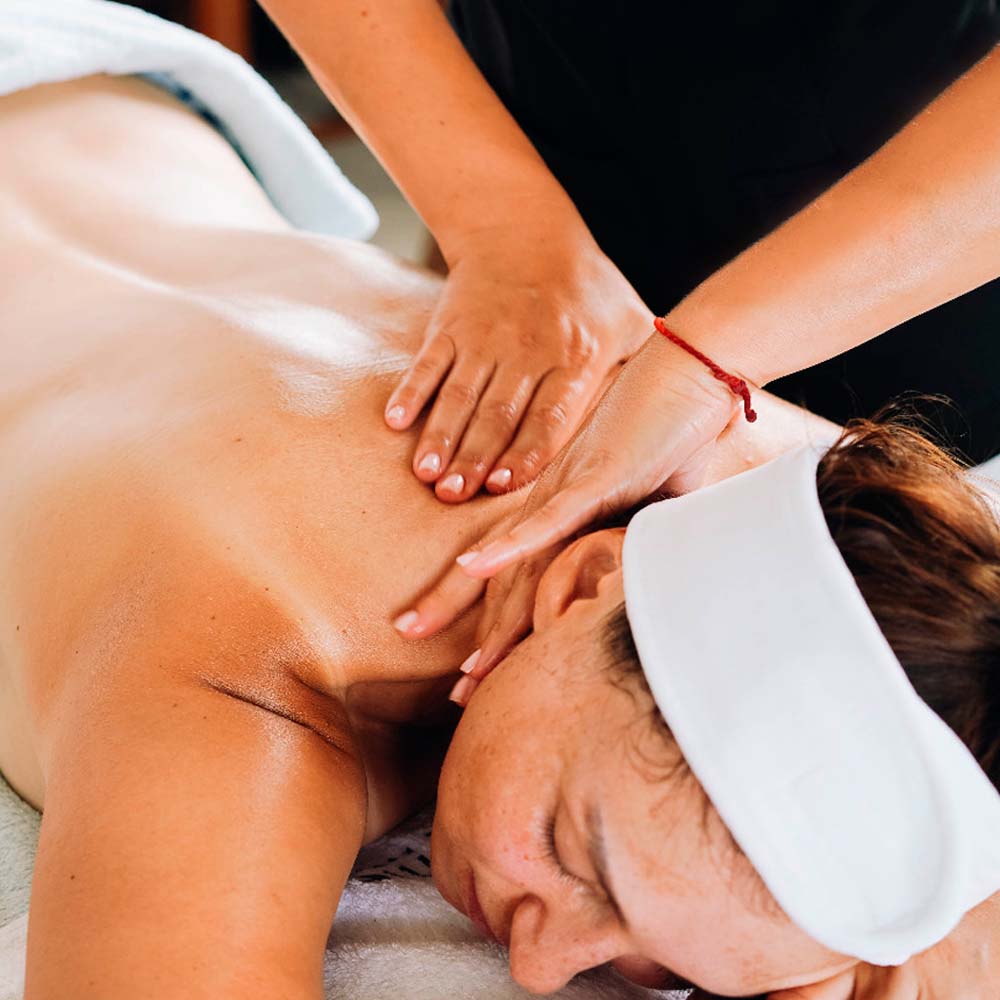
Abhyanga (Oil Massage) + Swedana – 80 Mins
Abhyanga is a Sanskrit term loosely translated to mean ‘glow on limbs’. It is an ancient oil massage treatment which traditionally means ‘anointing the body with oil’. Abhyanga is normally done with warm oil, starting with the soles of feet and working up to the head. Sneha in Sanskrit means unctousness and love. Oil is also alternately termed as sneha. Oil is lubricating, smooth, heavy and most of all has a grounding effect on the body and mind. When warm oil is applied on the body, it gives one a luxurious relaxed feeling immediately. Ayurveda suggests doing abhyanga everyday or every few days. Self- abhyanga does not have to be a big production. You just need 15 mins before a shower to apply oil on your body, leave it on for 5 mins, and wash it off using scrub and light soap. If abhyanga on the whole body is not possible regularly, applying oil on feet, ears and head is very essential to keep the body and mind calm, stable and energetic. Abhyanga is a treatment that primarily works by pacifying Vata dosha (read more on doshas in my ‘Concept of Doshas’ blog page). A balanced Vata means a focused and balanced Self.According to scripture Ashtanga Hrudaya (Sutrasthan 2/8-9) many benefits of Abhyanga have been listed, some of them are:
Keeps mind calm and relaxed and you get ultra refreshed feeling after abhyanga
Slows down aging and promotes longevity
Reduces stress and fatigue
Tones body and skin
Maintains smooth, supple, soft and glowing skin
Creates good muscle tone
Swedana means inducing sweat. It is either dry or wet. After abhyanga wet steam is recommended to open pores of skin to allow oil to penetrate deeper. Steam is administered in either personal steam cabinet or one can sit in sauna. After self-abhyanga shower helps to open pores.
Points to note:

Best time for abhyanga is anytime in the day making sure you don’t do it right after heavy meal. Light meal before abhyanga is alright. Avoid late evening of night abhyanga as you don’t want to refresh your body and mind at this time.

Abhyanga is not suitable when you are menstruating or in the first trimester of pregnancy.

Abhyanga should be avoided if you are sick.
